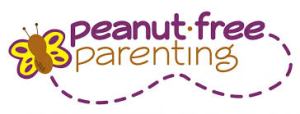 A couple of months ago a Medical Research Council trial at Addenbrooke’s Hospital offered hope that there might be a cure for peanut allergy.
A couple of months ago a Medical Research Council trial at Addenbrooke’s Hospital offered hope that there might be a cure for peanut allergy.
Those with this allergy risk anaphylactic shock which can kill you just because of exposure to minute quantities of the nut.
The therapy worked by slowly building up a tolerance to the nuts over a 6-month period.
The prevalence of nut allergy has doubled over the last five years in Europe. The UK has the highest prevalence of allergies in Europe and 1 in 55 children has a nut allergy. In America it’s estimated to affect 2% of all infants i.e. 1 in 50.
Unlike other childhood allergies this one persists into adulthood and for 20% gets worse.
It was once believed to be due to mothers eating peanuts during pregnancy but this was disproved by a large-scale study in 2003. Children who developed the allergy in this study had all had eczema and rashes as babies. The worse their skin was the more likely were they to have a sever peanut allergy.
And the risks were increased if the mothers used baby-care products containing peanut oil. Many baby lotions contain peanut oil, listed as arachis oil, and so did many products designed to soothe eczema. Manufacturers later swapped arachis for soya oil – but that comes from the same family as peanuts.
Professor Michael Cork at Sheffield University, a specialist paediatric dermatologist, thinks the problem lies in the way we wash babies. Babies are born with acidic skin which acts as a barrier to prevent the wrong kind of bacteria. Using alkaline soaps or water in hard-water areas disrupts this barrier.
Allergens such as peanut oil can then bypass the skin’s barrier, cause eczema, which also disrupts the barrier, and set up an “allergic march” which is a progression of allergic responses including asthma and hay fever.
So what can we do part from never washing our children? Well you would have to use a product which kept the body pH neutral. And if your child has already developed an allergy you would need close medical supervision and there are fewer than 20 hospitals with in the UK with paediatric allergists.
This is a problem that’s not going to go away any time soon.

You must be logged in to post a comment.